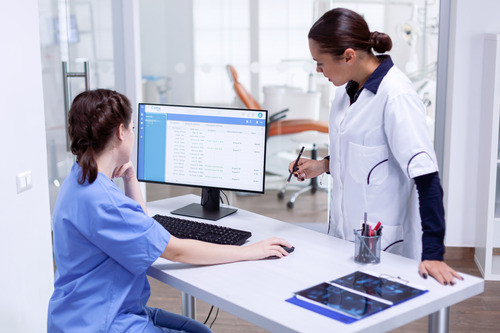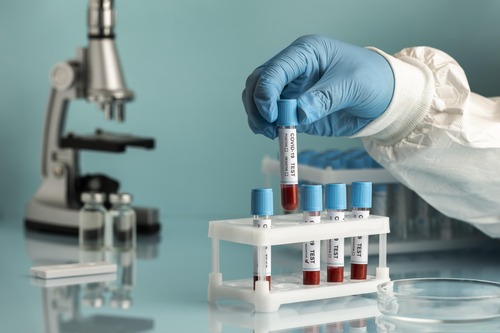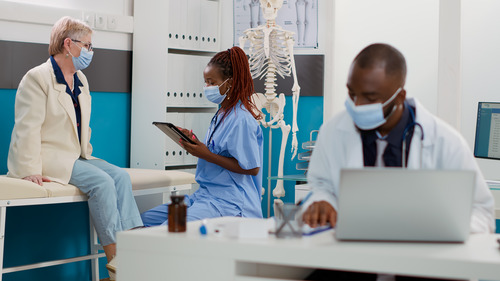Medical Office Assistants and Unit Clerks play a vital role in the healthcare industry by performing administrative tasks and basic medical duties.
After completing a MOA diploma program, you can explore a vast number of job options in the market. The program equips you with industry-relevant knowledge and skills to make you the right fit for work opportunities. In this blog, we’ll take a look at various job options available for MOA graduates. Before moving ahead, let’s learn about the role of Medical Office Assistant & Unit Clerk (MOA)
Medical Office Assistants or Unit Clerks are the ones whom we meet at first when we visit any medical office. They are considered the superheroes of the medical offices as they handle multiple administrative tasks at once. Without them, you can’t access the right information if you need any help. This is the reason that they play a crucial role in contributing to the health and wellness of the communities. They are in charge of providing information and necessary forms to the patients, checking them and helping them to feel comfortable till they see the doctor. If you like meeting new people and have the capability of calmly handling the patients, then this would be a bonus for you!
Job options for Medical Office Assistant & Unit Clerk (MOA) graduates
Graduates of Medical Office Assistant and Unit Clerks usually work in hospitals, medical clinics, offices, long-term care, and many more. They work with different medical professionals, including physicians, doctors, assistants, nurses, and emergency response teams. The job roles that you can take up after successfully completing the program are:
· Hospital Unit Clerk
· Medical Clinic Office Assistant
· Medical Receptionist
· Laboratory Clerk
· Physician’s Assistant
Let’s dive deeper into each role.
Hospital Unit Clerk

As the name suggests, it includes all the clerical work providing clerical and communication support in a nursing unit. The working hours of the hospital unit clerks depend on the shifts they are working for. Their duties involve answering the phone and distributing mail, greeting patients, taking appointments, maintaining patient charts, processing billing, preparing timesheets for the working staff, transcribing doctors’ orders, scheduling tests and arranging for equipment and patient transportation as needed, communicating with healthcare providers, patients, and families, last but not the least managing inventory and ordering supplies.
Medical Clinic Office Assistant

They usually have similar responsibilities to that of unit clerk but at some places, office assistants also have to perform clinical tasks like monitoring patients’ body temperature, blood pressure, pulse rate, respiration rate, measuring patients’ weight and height, collecting laboratory samples, cleaning and preparing exam rooms, and assisting during exams and minor procedures. Besides all these duties, Medical Clinic Office Assistants have more contact with patients, depending on the needs of the clinic where they work.
Medical Receptionist

Being a medical receptionist can be a little hard as this is a position which is often a starting point for a career in healthcare. The job duties include greeting the visitors and managing patient intake, scheduling appointments between doctors and patients, maintaining medical records, handling all the patient queries, operating telephones to answer and route patient calls, maintaining inventory for supplies, checking for any maintenance, and much more. Hospitals, medical and dental offices, and other offices employ medical receptionists throughout the public and private sectors. The job responsibilities can be different depending on the place and their employer.
Laboratory Clerk

Laboratory Clerk is another job option available to the graduates of the Medical Office Assistant & Unit Clerk Diploma. This includes working in labs or for laboratory orders. As we all know, laboratories are vital establishments where patients’ samples go for testing and diseases are identified. So it is mandatory for laboratories to stay clean and organized and laboratory clerks keep the laboratories tip-top.
Laboratory clerks perform all the administrative duties in the laboratories, including keeping track of samples, processing test results, and inserting data. So the right candidate should have organizational skills, data entry skills, and the basic knowledge of phlebotomy, which they learn on the job.
Physician’s Assistant

They are the professionals who work with physicians to provide good healthcare. They always work under the physician’s supervision and maintain patients’ histories, conduct physical exams, and perform diagnostic and therapeutic interventions. At some working centers, Physician Assistants order X-rays, blood tests and other diagnostic procedures. It is to be noted that Physician Assistants practice medicine under the supervision of a licensed physician within a patient-centered healthcare team.
Final Thoughts
It is right to say that the possibilities are endless for those who study for a medical office assistant and unit clerk diploma. ABM College trains students in multiple medical office administrative technologies and also in the areas of advanced medical technology. Apart from training, students also gain real hands-on experience through a practicum.
Now that you all know about the job possibilities after studying medical office assistant and unit clerk diploma, we’re sure you’ll start considering this course to fast-track your career.
Contact us to learn more about this program.
You can read more industry-related blogs here.
About The Author

Social Media Specialist & Content Writer, ABM College
Navneet Arora is an experienced social media strategist and SEO-focused content writer specializing in education, career development, and digital marketing. She holds a Master’s Degree in Journalism & Mass Communication and has over 8 years of hands-on experience crafting high-performing content for blogs, websites, and digital platforms.
At ABM College in Calgary, Alberta, Navneet develops engaging, research-driven articles that help students, professionals, and career changers navigate today’s job market. Her work has been published on leading Indian national news portals and recognized for driving measurable traffic growth.
Connect with Navneet on LinkedIn or read more of her work on the ABM College Blog.
